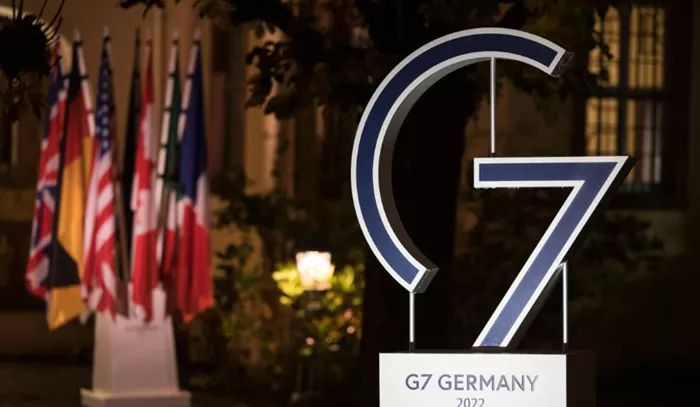A majority of Group of Seven (G7) countries are prepared to reduce the existing price cap on Russian oil exports, sources familiar with the matter told, even as U.S. President Donald Trump remains hesitant to support the move.
The price cap, introduced in late 2022, aims to restrict Russia’s revenue from oil sales, thereby limiting its capacity to finance military operations in Ukraine. Oil and natural gas exports constitute roughly one-third of Russia’s federal budget, fueling a 25% increase in defense spending this year—levels not seen since the Cold War.
G7 leaders are scheduled to meet from June 15 to 17 in Canada, with discussions focused on revisiting the $60 per barrel cap that permits Russian oil to be sold to third countries using Western insurance services, provided the price does not exceed that threshold.
European Union member states and the United Kingdom have been advocating for lowering the cap to approximately $45, citing a global drop in oil prices that has rendered the current $60 limit less effective.
According to multiple anonymous sources, the EU and UK are prepared to spearhead this initiative, potentially acting independently but supported by other European G7 members and Canada. The United States’ stance remains uncertain, and Japan’s position has yet to be clarified.
“There is a push among European countries to reduce the oil price cap to $45 from $60. There are positive signals from Canada, Britain, and possibly Japan. We will use the G7 to try to get the U.S. on board,” one source said.
While the White House anticipates “robust discussions” on economic and geopolitical issues during the summit, President Trump has yet to publicly endorse lowering the cap. At a recent G7 finance ministers meeting in Canada, U.S. Treasury Secretary Janet Yellen expressed reservations about the necessity of reducing the cap.
Nevertheless, some members of the U.S. Senate, including Senator Lindsey Graham, have voiced support for a lower cap and tougher sanctions on Russia. Graham has proposed stringent tariffs on buyers of Russian oil as part of a broader sanctions package.
Meanwhile, Western allies have intensified efforts to crack down on Russia’s “shadow fleet”—a network of tankers and intermediaries that circumvent the price cap. These measures have begun to dent Moscow’s oil revenues, with state-owned oil giant Rosneft reporting a 14.4% profit decline last year.
As the G7 summit approaches, the outcome of the oil price cap discussions will be a critical test of the alliance’s cohesion in maintaining pressure on Russia amid the ongoing conflict in Ukraine.


